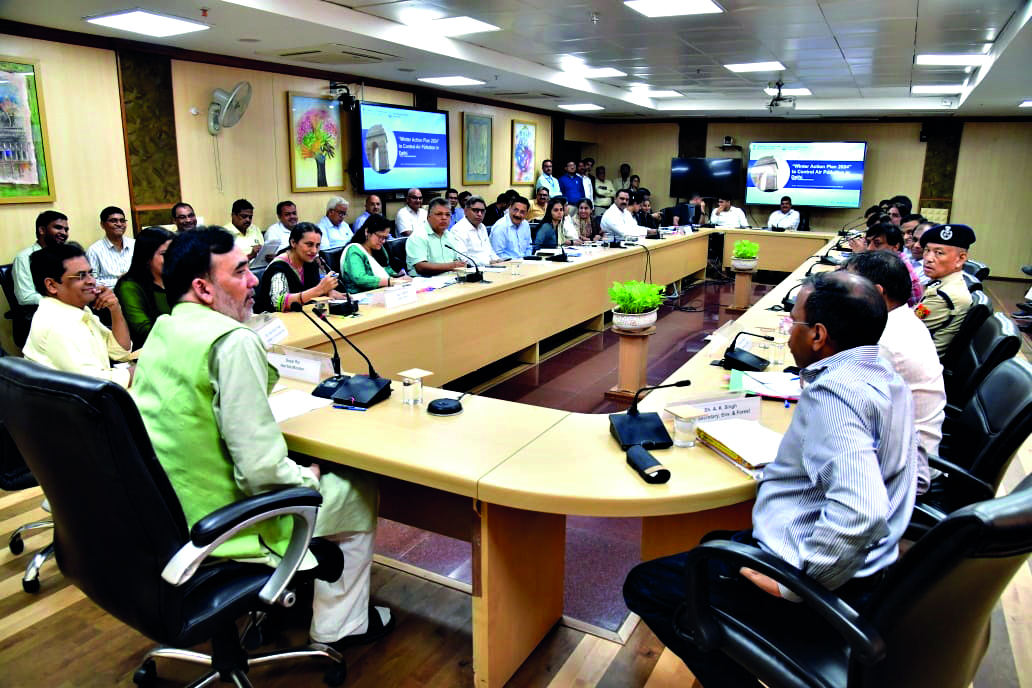Drone monitoring, spl task force to be part of Winter Action Plan: Rai

New Delhi: In a bid to tackle the severe air pollution anticipated during the winter months, the Delhi government, under the leadership of Environment minister Gopal Rai, has announced a robust 21-point Winter Action Plan. This comprehensive strategy aims to address various sources of pollution and enhance air quality in the capital.
In a press conference, Rai revealed that the plan would introduce drone technology for real-time monitoring of pollution hotspots in Delhi. “For the first time, pollution will be monitored by drones at 13 hotspots to reduce pollution,” Rai stated, highlighting this as a significant advancement in the city’s environmental strategy. Additionally, a special task force will be established to oversee and implement pollution control measures. Rai noted, “A special task force will be formed to prevent pollution,” underscoring the government’s commitment to addressing air quality issues with a coordinated approach.
The Winter Action Plan is structured around 21 focus areas, each assigned to specific departments. Rai explained that all departments have been directed to submit their detailed action plans by September 12. “Each department has been assigned specific responsibility on 21 focus points to prepare the winter action plan,” he said. This coordinated effort is expected to streamline the city’s approach to pollution control and ensure comprehensive coverage of all critical areas.
The 21-point plan includes a range of strategies designed to tackle various sources of pollution. These include drone monitoring of hotspots, control of dust pollution, and operation of mobile anti-smog guns. Rai detailed that departments such as the PWD, MCD, and Delhi Traffic Police will take on specific roles, including dust control and managing vehicle emissions. The plan also addresses stubble burning and industrial pollution, with the development Department and
Revenue Department assigned to manage the former, while multiple agencies, including MCD and DPCC, will tackle industrial pollutants.
Further, the plan introduces measures like the expansion of green cover through tree plantation, establishment of an e-waste eco park, and a ban on firecrackers.
Rai stated, “This time, for the first time, pollution will be monitored by drones at 13 hotspots to reduce pollution,” emphasising the innovative approaches included in this year’s strategy. The government will also engage in dialogue with the Central government and neighbouring states to coordinate pollution control efforts, and is preparing for emergency measures such as artificial rain and odd-even vehicle restrictions if necessary.
Underlining the importance of this initiative, Rai highlighted the progress made over the past nine years, stating, “The number of good, satisfactory, and moderate category days increased from 110 in 2016 to 206
in 2023.” He reiterated the government’s commitment to further improving air quality and managing pollution more effectively this winter.



